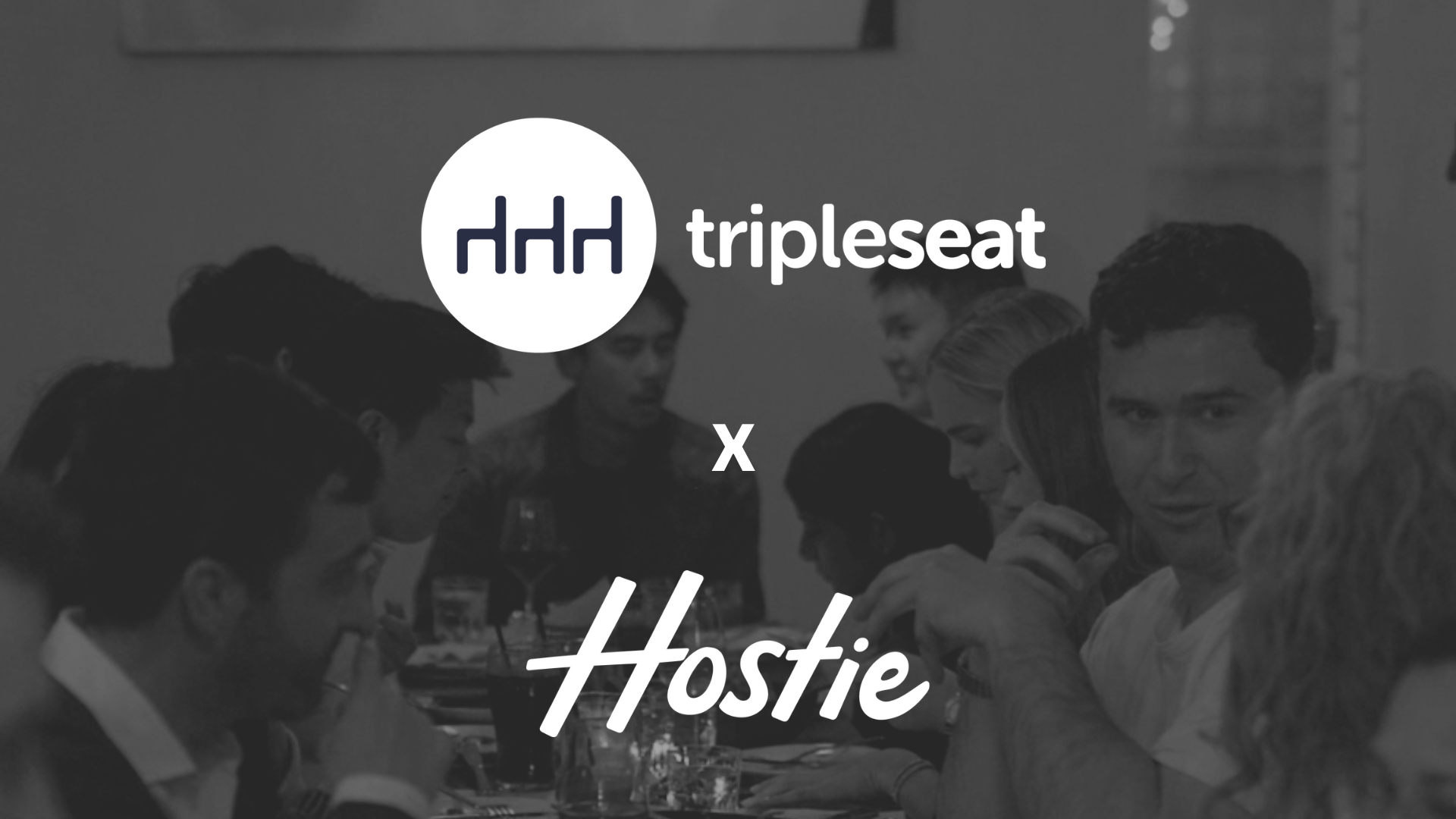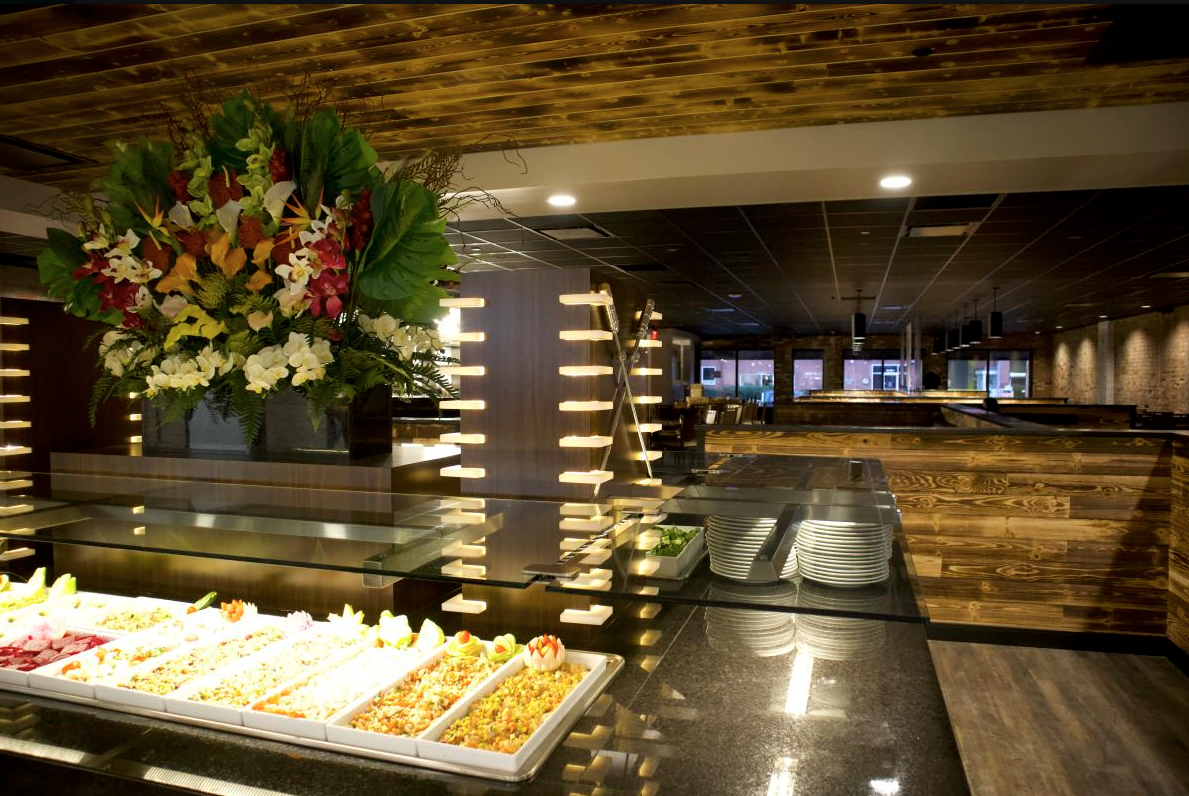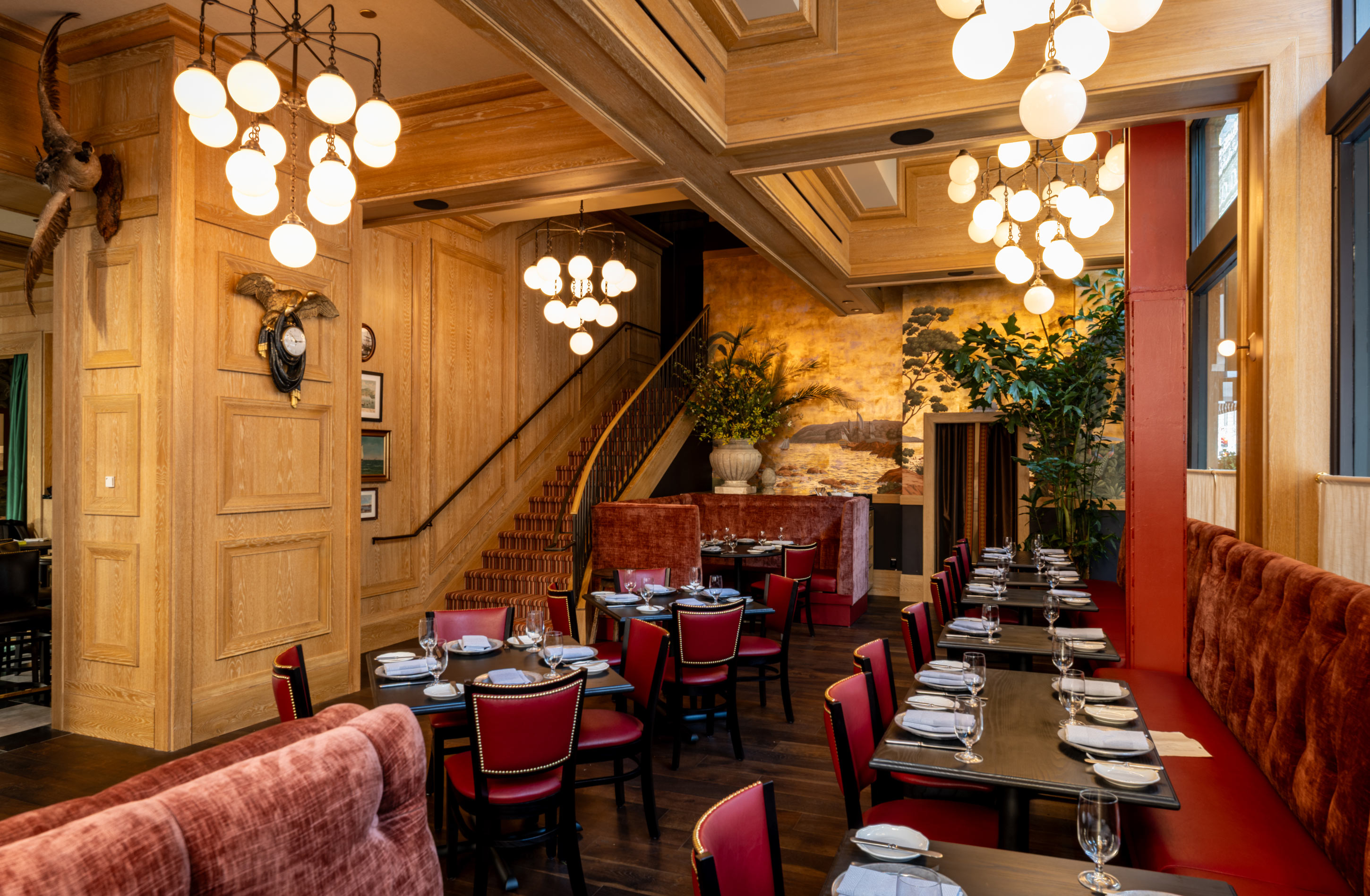
Picture this: It's Saturday night, your restaurant is packed, and your weekend host just called in sick. Your manager is now juggling seating charts while trying to answer a ringing phone, and potential guests are hanging up after the fourth ring. Sound familiar? You're not alone. Over two-thirds of Americans are willing to abandon restaurants that don't answer their phones (AI Phone Host Integration Guide).
The good news? There's a solution that's transforming how restaurants handle guest communications, and the ROI numbers are compelling. AI phone assistants are generating additional revenue of $3,000 to $18,000 per month per location, up to 25 times the cost of the AI host itself (Q3 2025 Restaurant Tech Trends).
In this comprehensive analysis, we'll break down the real costs and returns of replacing weekend host coverage with a 24/7 AI phone assistant in a 100-cover restaurant. Using current market data and real case studies, we'll show you three scenarios: conservative, realistic, and optimistic, with payback periods ranging from 16 to 30 days and lifetime savings reaching $328,000 over five years.
The restaurant industry is facing unprecedented staffing challenges. Front-of-house wages have increased by 12% year-over-year, with the average hourly wage for a human hostess now at $17 (ROI Calculator: Virtual Host vs. Human Hostess). Meanwhile, 60% of restaurant operators are having difficulty filling jobs and 39% are losing revenue opportunities due to staff shortages (Proving 700% ROI: AI Takeout Ordering).
Restaurants reported a 34% average increase in labor costs in 2023, and 88% of restaurant leaders feel the impact of high input costs, including direct materials and labor (Building Restaurant Resilience). These numbers paint a clear picture: traditional staffing models are becoming unsustainable.
Here's a sobering statistic: popular restaurants receive between 800 and 1,000 calls per month, averaging 187 calls daily, but only 30% have systems capable of answering or routing calls effectively (Peak-Hour Accuracy Showdown). This means that on average, restaurants are missing 43% of their incoming calls during peak hours.
The impact is immediate and measurable. Data from over 500,000 restaurant calls collected between Q4 2024 and Q2 2025 shows that when AI handles the phone, there's a 91% drop in hold time and an 87% reduction in missed calls (Peak-Hour Accuracy Showdown).
Before we dive into the numbers, let's look at a real-world example. The Slanted Door Group started using Hostie in 2024 and has seen remarkable results (How The Slanted Door Group Boosted Covers). Since implementation:
"Like many restaurants today, we're working with leaner teams who are juggling more than ever—while guests still expect the same level of attention and hospitality, understandably so. That's why we need smarter tools that help us stay connected and efficient, without compromising on the quality of service," explains Michelle Mah, Director of Operations (How The Slanted Door Group Boosted Covers).
For our 100-cover restaurant model, we're using these industry-standard assumptions:
| Metric | Without AI | With AI | Improvement |
|---|---|---|---|
| Monthly calls received | 800 | 800 | - |
| Calls answered | 456 (57%) | 680 (85%) | +224 calls |
| Conversion rate | 25% | 28% | +3% |
| Monthly reservations from calls | 114 | 190 | +76 |
| Monthly revenue from calls | $9,690 | $16,150 | +$6,460 |
| Monthly net benefit | - | - | $7,249 |
| Payback period | - | - | 30 days |
| 5-year savings | - | - | $328,164 |
| Metric | Without AI | With AI | Improvement |
|---|---|---|---|
| Monthly calls received | 800 | 800 | - |
| Calls answered | 456 (57%) | 720 (90%) | +264 calls |
| Conversion rate | 25% | 30% | +5% |
| Monthly reservations from calls | 114 | 216 | +102 |
| Monthly revenue from calls | $9,690 | $18,360 | +$8,670 |
| Monthly net benefit | - | - | $9,459 |
| Payback period | - | - | 22 days |
| 5-year savings | - | - | $428,508 |
| Metric | Without AI | With AI | Improvement |
|---|---|---|---|
| Monthly calls received | 800 | 800 | - |
| Calls answered | 456 (57%) | 760 (95%) | +304 calls |
| Conversion rate | 25% | 33% | +8% |
| Monthly reservations from calls | 114 | 251 | +137 |
| Monthly revenue from calls | $9,690 | $21,335 | +$11,645 |
| Monthly net benefit | - | - | $12,434 |
| Payback period | - | - | 16 days |
| 5-year savings | - | - | $563,244 |
Unlike human hosts who work specific shifts, AI assistants work around the clock. Hostie's AI assistant, Jasmine, handles bookings around the clock and helps managers reclaim valuable floor time (How The Slanted Door Group Boosted Covers). This means capturing late-night reservations, early morning calls, and holiday bookings that would otherwise be missed.
"Thanks to Hostie, we've been able to spend more time connecting with our guests. That personal touch has translated into stronger online reviews—many mention how warm and attentive our team is. I believe it's because guests feel taken care of. There's someone right in front of them, fully present and engaged," notes Michelle Mah from The Slanted Door Group (How The Slanted Door Group Boosted Covers).
Modern AI phone assistants integrate directly with existing reservation systems, POS systems, and even event planning software (Introducing Hostie). Hostie AI allows for streamlined integration with OpenTable reservations and Square POS system in under an hour (Hostie AI OpenTable Square Integration).
Today's AI phone assistants can handle all kinds of requests: from simple reservation changes to complex private event inquiries and complicated order modifications (Introducing Hostie). The technology has evolved significantly, with AI now an industry standard—nearly 75% of consumers and 70% of foodservice operators are at least somewhat familiar with AI (AI in Foodservice).
Modern AI systems offer automated 24/7 call answering, multi-channel management, real-time language translation, instant response to common inquiries and requests, automated reservation handling and modifications, large party booking management, automated takeout order processing, special request and modification handling, and real-time menu item availability updates (Introducing Hostie).
HostieAI is an automated guest management system that learns and engages with nuance (Introducing Hostie). After integrating with partner establishments such as Flour + Water and Slanted Door, it now handles over 80% of their guest communications automatically (Introducing Hostie).
One of the most attractive aspects of AI phone assistants is the speed of implementation. The integration process is straightforward and does not require extensive technical knowledge, with most systems ready to go in under 60 minutes (Hostie AI OpenTable Square Integration).
While the technology is sophisticated, the human element remains crucial. Staff need to understand how to work alongside AI systems and when to step in for complex situations. The key is positioning AI as a tool that enhances rather than replaces human hospitality.
Successful implementation requires tracking key metrics:
The Voice AI Agents Market is projected to reach $47.5 billion by 2034, indicating massive growth potential (ROI Calculator: Virtual Host vs. Human Hostess). The global food automation market is projected to reach $14 billion by the end of 2024, with a potential 69% increase in AI and robotics use in fast food restaurants by 2027 (Q3 2025 Restaurant Tech Trends).
57% of hospitality owners worldwide have adopted automation as a critical survival strategy, and 58% of people aged 18-38 are more likely to return to restaurants that use automation (Hostie AI OpenTable Square Integration). This shows that both operators and consumers are embracing AI technology.
Restaurants that adopt AI early are positioning themselves for long-term success. High-volume restaurants receive between 800 and 1,000 calls per month, which can disrupt service and overwhelm staff (2025 Best AI Restaurant Software). AI restaurant software represents a new generation of voice assistants designed to handle calls 24/7, manage reservations, and free up staff to focus on creating memorable dining experiences (2025 Best AI Restaurant Software).
Modern AI phone systems have proven reliability, with data showing consistent performance across hundreds of thousands of calls (Peak-Hour Accuracy Showdown). However, it's important to have backup procedures and human oversight for complex situations.
While some guests may initially prefer human interaction, the key is ensuring the AI provides excellent service. When implemented well, many guests appreciate the immediate response and accurate information that AI systems provide.
It's crucial to position AI as a tool that enhances staff capabilities rather than replacing them. The goal is to free up staff to focus on high-value activities like guest interaction and service quality.
To help you calculate the specific ROI for your restaurant, here are the key variables to consider:
Monthly Savings = (Host Labor Cost) + (Additional Revenue from Improved Call Handling) - (AI System Cost)
Payback Period = AI System Setup Cost / Monthly Savings
5-Year ROI = (Monthly Savings × 60) - (AI System Setup Cost)
Restaurants that benefit most from AI phone assistants typically have:
AI might not be the right fit if:
The restaurant industry is undergoing a technological revolution, with AI playing a pivotal role in transforming customer experiences (Q3 2025 Restaurant Tech Trends). AI has evolved from a futuristic concept to an essential operational tool for restaurants that want to stay competitive.
Restaurant IT managers are increasingly leveraging AI-powered voice systems, reservation platforms, and point-of-sale systems to streamline operations and enhance guest experiences (2025 Hostie AI OpenTable Toast Integration). The future points toward even more sophisticated integrations, with zero-touch reservations allowing calls to flow directly from AI systems to restaurant POS and kitchen display systems without any human intervention.
The numbers don't lie: replacing weekend host coverage with a 24/7 AI phone assistant delivers compelling ROI for 100-cover restaurants. With payback periods as short as 16 days and five-year savings potentially exceeding $500,000, the financial case is clear. But beyond the numbers, AI phone assistants address fundamental operational challenges that restaurants face today.
As HostieAI was created by a restaurant owner and an AI engineer, the platform is designed for restaurants, made by restaurants (Introducing Hostie). This deep understanding of restaurant operations translates into solutions that actually work in the real world, as demonstrated by success stories like The Slanted Door Group and Flour + Water (How Flour + Water Used Hostie).
The question isn't whether AI will transform restaurant phone management—it already is. The question is whether your restaurant will be an early adopter that captures the competitive advantage, or whether you'll be playing catch-up in a market where 24/7 availability and instant response times become the standard.
With front-of-house wages continuing to rise and staffing challenges persisting, AI phone assistants offer a path to better service, higher revenue, and more sustainable operations. The ROI is clear, the technology is proven, and the time to act is now.
💡 Ready to see Hostie in action?
Don't miss another reservation or guest call.
👉 Book a demo with Hostie today
Based on ROI calculations for 100-cover restaurants, the payback period for replacing a weekend host with an AI phone assistant ranges from 16-30 days. This rapid return on investment is driven by immediate labor cost savings and increased revenue from never missing calls, making it one of the fastest-paying restaurant technology investments available.
A 100-cover restaurant can achieve lifetime savings of up to $328,000 by replacing weekend hosts with AI phone assistants. These savings come from eliminated labor costs, reduced turnover expenses, and increased revenue from improved call handling and reservation capture rates.
Over two-thirds of Americans are willing to abandon restaurants that don't answer their phones, according to industry research. Popular restaurants receive 800-1,000 calls per month, but only 30% have systems capable of effectively answering or routing calls, leading to significant lost revenue opportunities.
Data from over 500,000 restaurant calls shows that AI phone systems deliver a 91% drop in hold time and an 87% reduction in missed calls compared to human-only operations. AI assistants maintain consistent performance during peak hours when human hosts are most likely to be overwhelmed or unavailable.
Yes, modern AI phone assistants like Hostie AI can integrate with major reservation systems like OpenTable and leading POS systems including Square and Toast in under 60 minutes. This enables zero-touch reservations where calls flow directly from the AI system to the restaurant's POS and kitchen display systems without human intervention.
AI solutions are generating additional revenue of $3,000 to $18,000 per month per location, which can be up to 25 times the cost of the AI host itself. Companies like The Slanted Door Group have reported boosting their over-the-phone covers by 56% after implementing AI phone systems, demonstrating significant revenue impact.
RELATED


